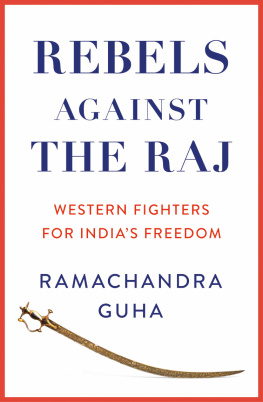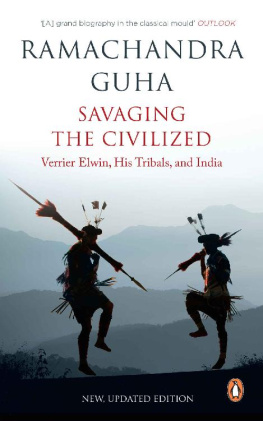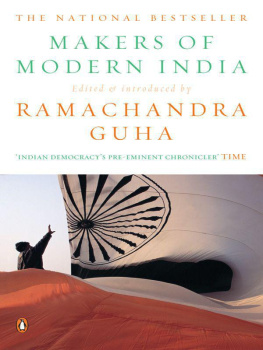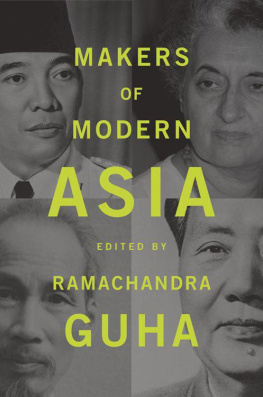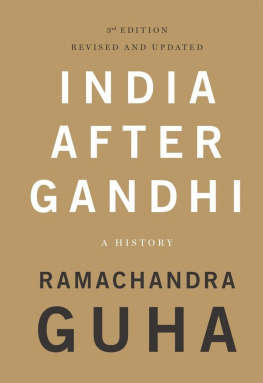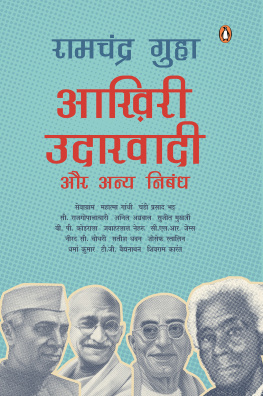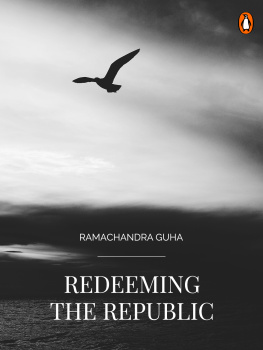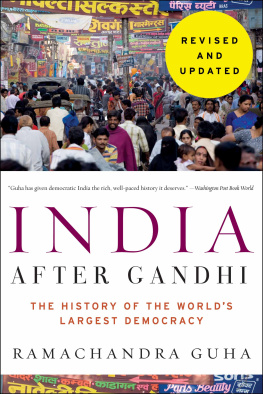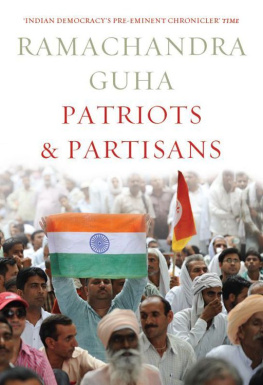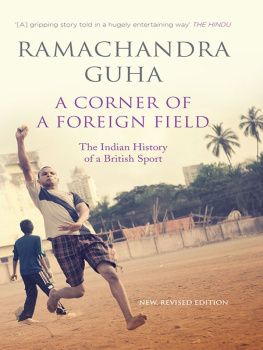REBELS AGAINST THE RAJ
Western Fighters for Indias Freedom
Ramachandra Guha

William Collins
An imprint of HarperCollinsPublishers
1 London Bridge Street
London SE1 9GF
WilliamCollinsBooks.com
HarperCollinsPublishers
1st Floor, Watermarque Building, Ringsend Road
Dublin 4, Ireland
This eBook first published in Great Britain by William Collins in 2022
Copyright Ramachandra Guha 2022
Cover image Album/Alamy
Ramachandra Guha asserts the moral right to be identified as the author of this work
A catalogue record for this book is available from the British Library
Information on previously published material appears .
All rights reserved under International and Pan-American Copyright Conventions. By payment of the required fees, you have been granted the non-exclusive, non-transferable right to access and read the text of this e-book on-screen. No part of this text may be reproduced, transmitted, down-loaded, decompiled, reverse engineered, or stored in or introduced into any information storage and retrieval system, in any form or by any means, whether electronic or mechanical, now known or hereinafter invented, without the express written permission of HarperCollins
Source ISBN: 9780008498764
Ebook Edition January 2022 ISBN: 9780008498788
Version: 2021-11-12
For Jean Drze
A foreigner deserves to be welcomed only when he mixes with the indigenous people as sugar does with milk.
Mohandas K. Gandhi, speaking to a friend in January 1946
If India had been deprived of touch with the West, she would have lacked an element essential for her attainment of perfection. Europe now has her lamp ablaze. We must light our torches at its wick and make a fresh start on the highway of time. That our forefathers, three thousand years ago, had finished extracting all that was of value from the universe, is not a worthy thought. We are not so unfortunate, nor the universe, so poor.
Rabindranath Tagore, writing in 1908
Contents
Loyalty is a virtue much cherished by humans, and those who are disloyal often face criticism. In the modern world, the gold standard of loyalty is loyalty to ones nation. Men are chastised for leaving their wives, politicians attacked for changing their parties. But the scoldings they face are nothing compared to those aimed at individuals who betray their countries. From Benedict Arnold to Lord Haw-Haw, there is a veritable rogues gallery of men (and they are virtually all men) who threw in their lot with a country at war with their own.
Very occasionally, however, history and morality permit, and even encourage, individuals to identify with, and devote their energies to fulfilling, the aspirations of a country that is not their homeland. Among these exceptions is the International Brigade which fought on the Republican side in the Spanish Civil War. Here were Frenchmen, Britons, Irishmen and Americans who took up arms to defend the democratic traditions of Spain and the individual liberties of Spaniards. Their heroism and sacrifice were much celebrated at the time, and have since been commemorated in a steady stream of novels, memoirs, biographies, historical studies, and films.
The International Brigade was formed in September 1936. It was disbanded two years later, by the Spanish Government, as a tactical move, in the hope that this would shame Hitler and Mussolini into stopping the sending of troops and money to the other side in the Civil War. Before the foreigners left for their own countries, they were given a stirring farewell in Barcelona. At a massive public gathering, Prime Minister Juan Negrn promised Spanish citizenship to those who chose to return. Then the celebrated orator Dolores Ibrruri, La Pasionara, spoke in praise of these foreign fighters. In years to come, she said, Spaniards would tell their children of
how, coming over seas and mountains, crossing frontiers bristling with bayonets these men reached our country as crusaders for freedom. They gave up everything, their loves, their country, home and fortune they came and told us, We are here, your cause, Spains cause is ours. It is the cause of all advanced and progressive mankind.
Rebels Against the Raj tells the story of another group of people who chose to struggle for the freedom of a country other than their own. This story remains much less known, although it is in some ways more remarkable. Those who joined the International Brigade came to Spain as temporary travellers. They would, sooner or later, go back to the nations from which they had come. The men and women profiled in this book came to India for the duration. They exchanged their old homeland for their new one unreservedly, and unequivocally once in India, they knew they would almost certainly die in India too. The foreigners who fought in Spain stayed for the most part within their racial and religious boundaries, whereas the freedom fighters of my narrative turned their back on their compatriots to identify with people who were neither Christian nor white. They did so for what should certainly have been the cause of all advanced and progressive mankind; namely, the ending of European imperialism and the liberation of colonized people.
One of the battalions in the International Brigade was named for Abraham Lincoln. Its members were all Americans. Yet, as the very name of the Lincoln Battalion suggests, for these fighters identification with the Republican cause in Spain did not mean a disavowal of their own country, but, rather, an affirmation of its noblest values. Abraham Lincoln was an American president who stood forthrightly for democracy and justice, at home; these compatriots who invoked his name would struggle for democracy and justice, abroad. To keep at bay the Fascists, to save Spain from the awful fate that had befallen both Italy and Germany, was therefore an act of transnational solidarity through which universal values could be pursued regardless of an individuals background or theatre of enactment.
In the same manner, by coming out to India the renegades of this book were not necessarily rejecting their land of origin. British fighters for Indias freedom were upholding the dissident culture within Britain itself, which urged them to be identified with the underdog. By doing what they did in India, for India, they were calling their British compatriots to their better selves. And the Americans in my story saw themselves as acting in the anti-imperialist tradition of their homeland. Like the foreign radicals in 1930s Spain, these foreign radicals in colonial India were not being disloyal to the nation of their birth; rather, they saw in another nation the possibility of pursuing social and political ideals that make human life more appealing everywhere. If imperialism was immoral and unjust, then ending it was in the interest of the colonizer as well as the colonized. If women sought equal rights in Britain or America, then surely they should get equal rights in India too.
The thirty thousand-odd foreigners who came to Spain in the 1930s left behind memories, warm and affectionate memories no doubt. However, they did not have any tangible influence on the history of the country whose cause they briefly made their own. The Civil War was lost by the Republican side they fought for. On the other hand, the seven individuals featured in this book did much more than bravely take a stand for Indian freedom. Through their work, and through their writings, they contributed enormously to public debate within India. They challenged Indians to pay closer attention to the fault lines of class and gender that preceded the coming of the British and which would if left unattended persist after the British left. They offered fresh, arresting, insights into how a free India could best promote economic development, equal access to education, and (most farsightedly) environmental sustainability.

